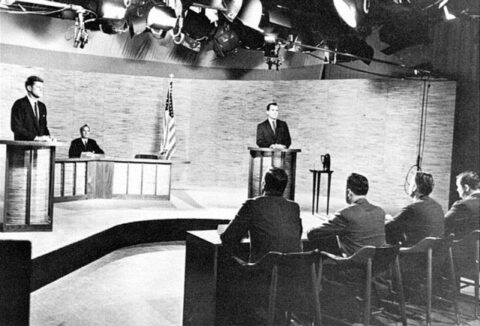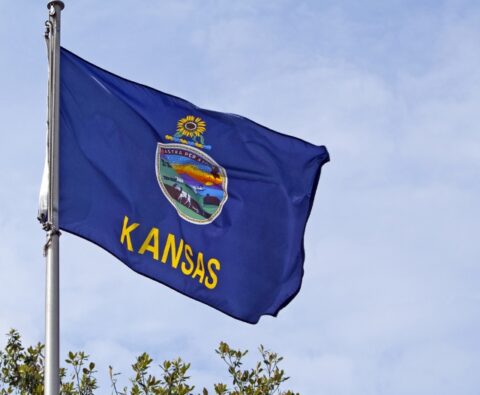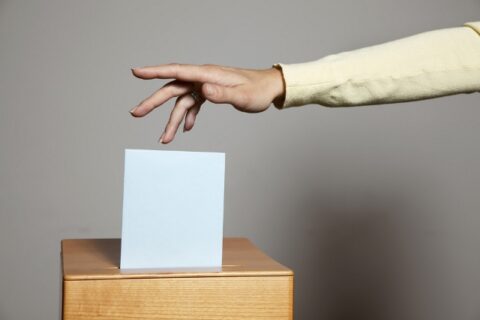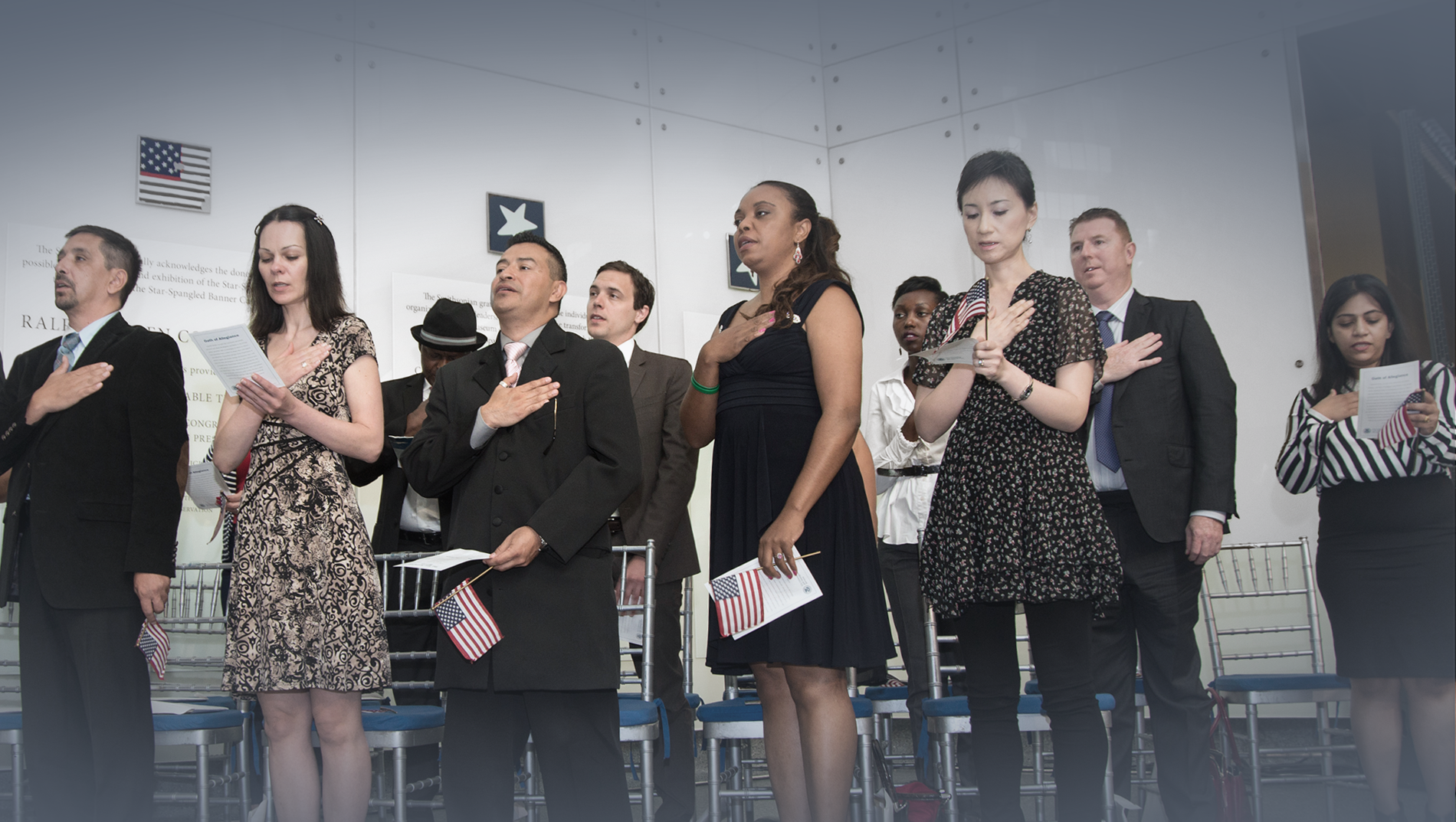Immigration 101
How the United States Immigration System Works
- How the Immigration System Works
- June 24, 2024
U.S. immigration law is very complex, and there is much confusion as to how it works. This fact sheet provides basic information…
Read More
Birthright Citizenship in the United States
- Birthright Citizenship
- October 16, 2024
This fact sheet explains birthright citizenship, the Fourteenth Amendment, and its interpretations. Who is…
Read More
Asylum in the United States
- Asylum
- August 27, 2014
Asylum seekers must navigate a difficult and complex process that can involve multiple government…
Read More
Pace of DACA Approvals Quickens, but Will it be Fast Enough?
For the first time since immigration authorities officially launched Deferred Action for Childhood Arrivals in mid-August, the federal government released statistics last Friday indicating that thousands of requests have been officially granted. But while the figures themselves are an encouraging sign, other evidence suggests that most applicants will not have their requests considered until after the next presidential inauguration in January, if at all. Read More

Presidential Debates: Brought to You by an Immigrant
Millions of Americans will tune into tonight’s vice-presidential debate, but few will know the origins of the presidential debate process. While we’ve come to think of these debates as a way to learn more about the candidates vying for our votes, the idea of holding public debates, like so many other great American ideas, can be traced back to an immigrant. While we frequently note that America’s progress over generations has depended on the hard work and ingenuity of past and current generations of immigrants, it’s important to remember that ideas themselves are a benefit sometimes hard to enumerate, but critical to the American experience. Read More

Kansans Push for Kobach Recall
Activists in Kansas are mounting a campaign to recall the state’s Secretary of State and notorious immigration restrictionist Kris Kobach. According to the Associated Press, there is a movement to collect signatures to recall him. For months, several groups have held rallies and press conferences, accusing Kobach of spending too much time working on his extracurricular activities – including promoting the anti-immigrant laws he authored in other states and attending immigration-related meetings – instead of serving the people of Kansas. Read More

Supreme Court Case Highlights Cruel Intersection of Immigration and Drug Laws
Tomorrow morning, the Supreme Court will hear arguments in a complicated immigration case involving how courts should determine whether a crime qualifies as an “aggravated felony.” Once the legal clutter is set aside, however, the case provides a clear example of how our nation’s immigration laws often fail to account for the most basic considerations of fairness and proportionality. If the Justices rule in the government’s favor, a lawful permanent resident with two U.S. citizen children could be deported from the country—and permanently barred from returning—for possessing less than $30 worth of marijuana. Read More

Naturalized Citizens Have the Power to Swing Elections
There is no doubt that immigrants are a force to be reckoned with in this year’s presidential race. After all, the Obama administration unveiled its Deferred Action for Childhood Arrivals (DACA) program in June, just a couple of months before the official start of the campaign. And Republican presidential nominee Mitt Romney has said that, if elected, he will not deport DACA beneficiaries (although he says he will discontinue the program). In other words, both candidates are going out of their way to woo immigrant voters—that is, naturalized U.S. citizens who are eligible to vote—as well as those second and third generation Americans for whom immigration is still a highly personal issue. This is smart politics. Given that the presidential election could be decided by the most razor-thin of margins, the ballots cast by naturalized citizens could prove decisive, especially in the handful of swing states upon which the election will probably hinge. Read More

Anti-Immigrant Activists Still Pushing the Myth of Voter Fraud by Noncitizens
In the world of anti-immigrant activists who specialize in stamping out “voter fraud” by non-U.S. citizens, there are few symbols more potent than that of the bus. Apparently, a bus is the favored mode of transportation among the legions of immigrants who want to subvert the U.S. electoral process by illegally casting ballots. Many a story of voter fraud by non-citizens begins with a busload of foreign-looking people being dropped off at a polling place. However, as Stephanie Saul writes in the New York Times, “it might as well be Harry Potter’s invisible Knight Bus, because no one can prove it exists.” This is a fitting symbol for the fact-free work being done by voter-fraud activists. They must rely on hearsay because there is no hard evidence to back them up. Read More

Lifting Up Cities That Are Welcoming Immigrants
When it comes to immigration policymaking at the state and local level, all eyes have been focused for quite some time on train wrecks like Arizona and Alabama. These are places in which policymakers have chosen to deal with unauthorized immigration by embarking on a path of economic self-destruction—blindly lashing out at immigrants and Latinos no matter what the cost in terms of wasted taxpayer money, labor-force contraction, lost economic growth, community upheaval, and violations of fundamental human rights. Read More

Congress Pits One Form of Legal Immigration Against Another
We recently noted that the only point of agreement in the Republican and Democratic platforms on immigration was on the need for an infusion of green cards for STEM (science, technology, engineering, and math) graduates with advanced degrees from American colleges and universities. A recent poll conducted for the Partnership for a New American Economy and Compete America shows that 76 percent of Americans support the idea as well. If only Congress could draft legislation that simply sought to put that idea into practice. Read More

As Chicago Passes Anti-Detainer Ordinance, TRUST Act Awaits Signature in California
Lost amongst media coverage of the ongoing teachers’ strike was the passage in Chicago last week of a historic measure that largely prohibits local police from detaining individuals on behalf of federal immigration authorities. Dubbed the “Welcoming City Ordinance,” the measure makes Chicago the latest jurisdiction to push back against immigration “detainers,” the lynchpin of the controversial Secure Communities program. Read More

Immigrant Integration is a Two-Way Street
The process by which immigrants integrate into the economic and social fabric of the United States is very much a two-way street. Naturally, immigrants must harbor the desire to climb the socioeconomic ladder of success. But there must be a ladder for them to climb. If the community within which immigrants live and work makes the collective decision to deprive them of opportunities, then their upward mobility is hindered—to the social and economic detriment of the entire community. Yet, if the community actually welcomes newcomers and helps to facilitate their upward mobility, then the community eventually reaps the rewards of having workers and neighbors who are more highly skilled, more integrated, and more heavily invested in the community itself. Read More
Make a contribution
Make a direct impact on the lives of immigrants.

